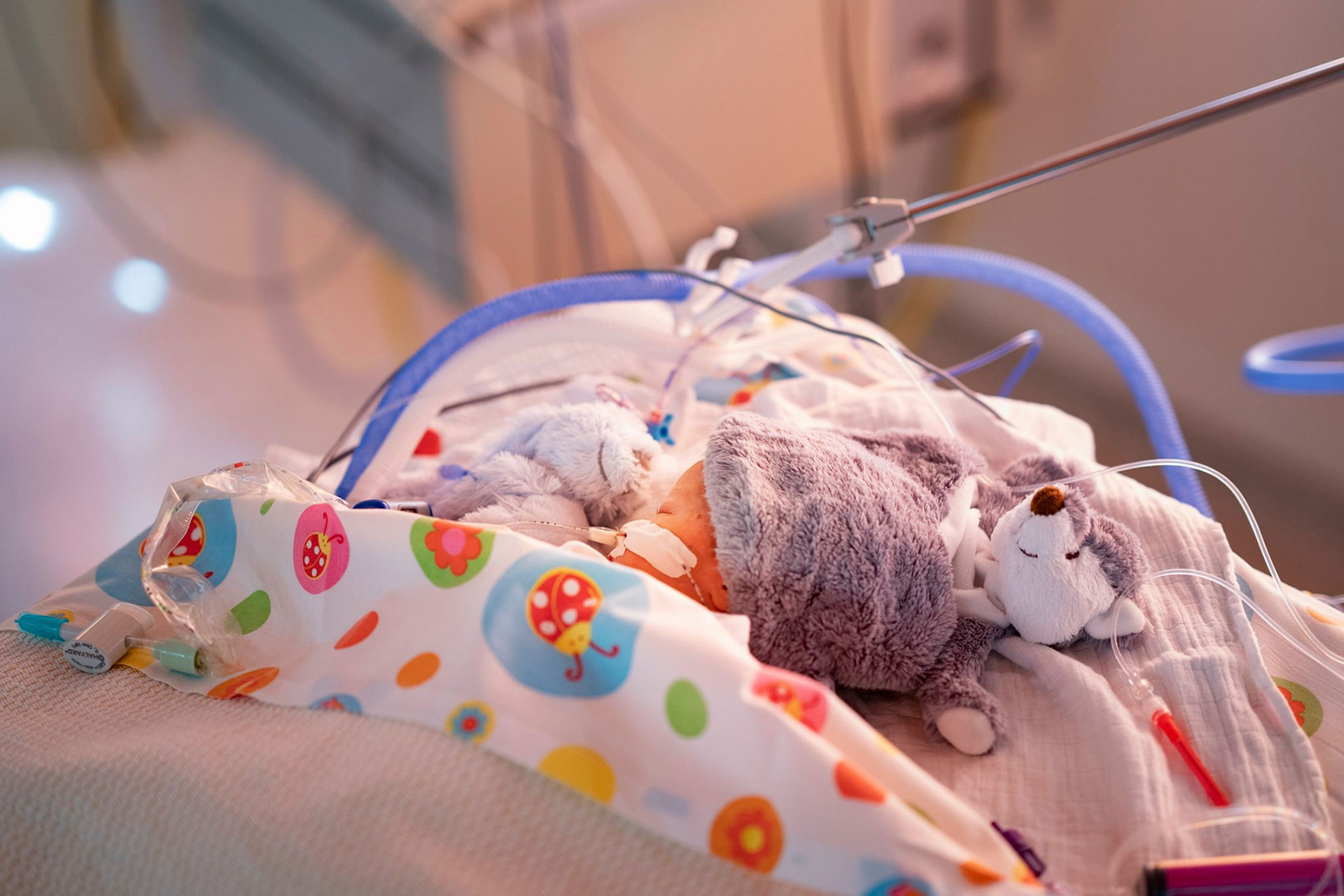Jan was only four weeks old when he was hospitalised with a severe RSV infection. He was admitted to an intensive care unit (ICU) and required ventilation for eight days. His mother, Marjolein, recalls how her healthy son became ill.
‘When Jan was four weeks old, I had to wake him up to feed, which I found rather strange because he was usually very active during that time of the day,’ she says. ‘He was sleepy and did not drink much.’
To be on the safe side, Marjolein took Jan to the GP and was advised to take him home and return if the situation deteriorated. It did. Jan was referred to the local hospital after he stopped drinking and became very unwell. Doctors quickly gave him oxygen and fed him through a tube; his breathing was increasingly laboured, and the family’s concern deepened.
‘Because his condition worsened, he needed a drip,’ says Marjolein. ‘When the doctor lifted him from the bed, Jan stopped breathing. He turned very pale and looked like a rag doll. I thought I was going to lose him. He was put on the ventilator and a team of doctors treated him. I felt powerless.’

ICU beds
Jan was intubated and transferred to the ICU of the nearest children’s hospital. ‘We were lucky that there was an ICU bed available. The previous day, some children in the Netherlands were transported to hospitals in Germany or Belgium as all paediatric ICU beds were occupied because of a peak in children with RSV.’
Marjolein’s child recovered but he was exhausted from the infection. His family too, were feeling the pressure. ‘The hospitalisation of Jan was a very intensive period for us,’ she recalls. ‘We were not allowed to sleep in the hospital; I was pumping milk several times a day so he could be fed through a tube. I was still recovering from a C-section…we were fortunate to have family and friends to help us out in these stressful times.’
These days, Jan and his family are doing very well. But his parents, like many others affected by RSV, were surprised about how little is known about the virus and its effect on babies – and hospitals.

Parent advocacy
The story is far from unique. RSV is the main cause of bronchiolitis, a common lung infection associated with inflammation and congestion in the small airways. While most infants are exposed to the virus before the age of two and make a full recovery, it can cause serious illness and is a major cause of hospitalisation in the first year of life.
Nicole Derksen-Lazet runs the RSV Patient Network, part of the EU RESCEU project. The project aims to deepen understanding across Europe of the burden of RSV, to improve diagnosis and treatment, and raise awareness among the public, health professionals and decision-makers.
The patient group brings together parents whose children have been affected by the virus. Because the disease is often mild and most parents move on once their child has recovered, it was not easy to build a sustainable advocacy network – and new members across Europe are still needed.
Nicole’s family participated in a clinical trial run by UMC Utrecht in 2010/2011 and built a small organisation that could give feedback on research and raise awareness of RSV among parents.
‘It’s quite shocking to find that your child is ill in hospital with a disease you’ve never heard of,’ she says. ‘Our aim is to educate the public, without frightening new parents. We first created posters and leaflets to put up in local child health centres and nurseries. When RESCEU was looking for patient and parent involvement, we established a group with members in several European countries – but it can be hard to find people to take part.’
RSV is not as well known as other childhood illnesses, says Nicole, partly because the symptoms are similar to other cold and flu-like illnesses, and because there are no vaccines.
That may change soon. The WHO says around 60 potential vaccines are in development and the parents group hopes that at least one of these will reduce the burden on infants, their families and ICU beds.
‘The experts we speak to expect a vaccine to become available in the next five years,’ says Nicole. ‘There are some promising phase III trials under way – one is a vaccine that would be given to pregnant women who could pass on protection. Another is testing a monoclonal antibody that could protect infants during the winter months.’
Read: New vaccines to protect babies during pregnancy
For a successful maternal vaccine to work, the mother produces antibodies to the virus and these pass to the baby through the placenta. It is hoped that this would offer infants protection during the early months of life when they are most vulnerable – just as pertussis vaccination in pregnancy can protect babies. Testing continues in large trials, but no vaccine has yet been approved.
RSV can also cause severe respiratory illness in older adults, usually during the winter months when flu and other viruses are also circulating. With ICU beds and ventilator equipment under unprecedented pressure due to COVID19, a vaccine against RSV could help ease some of the pressure on stressed hospital systems across Europe.




